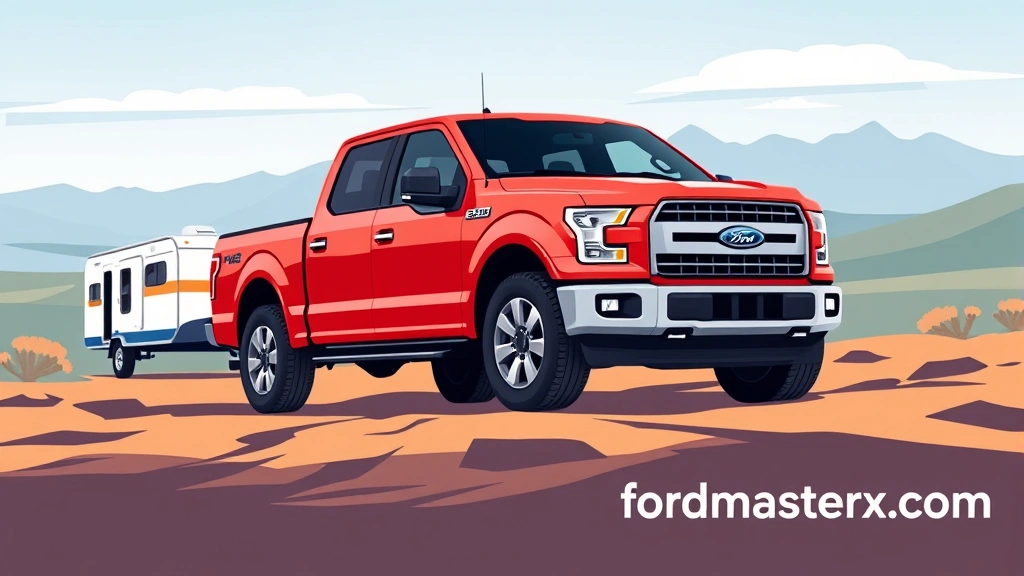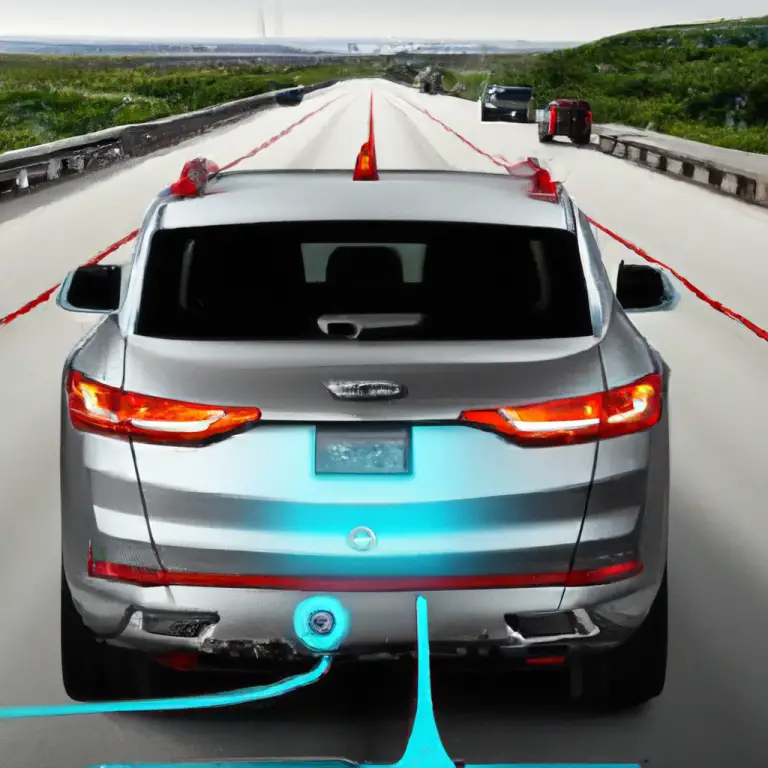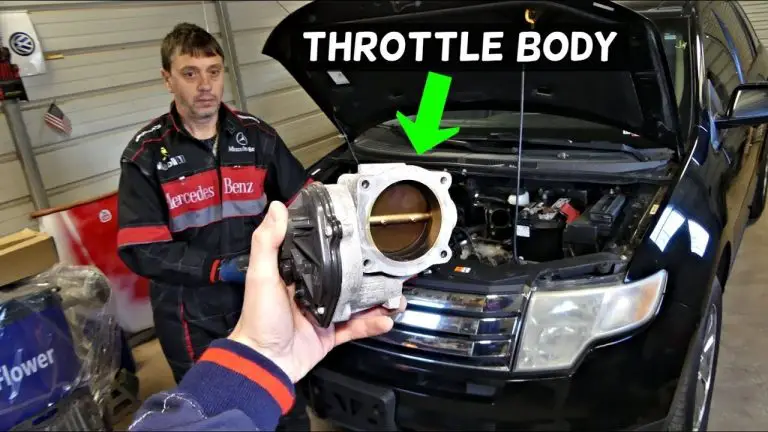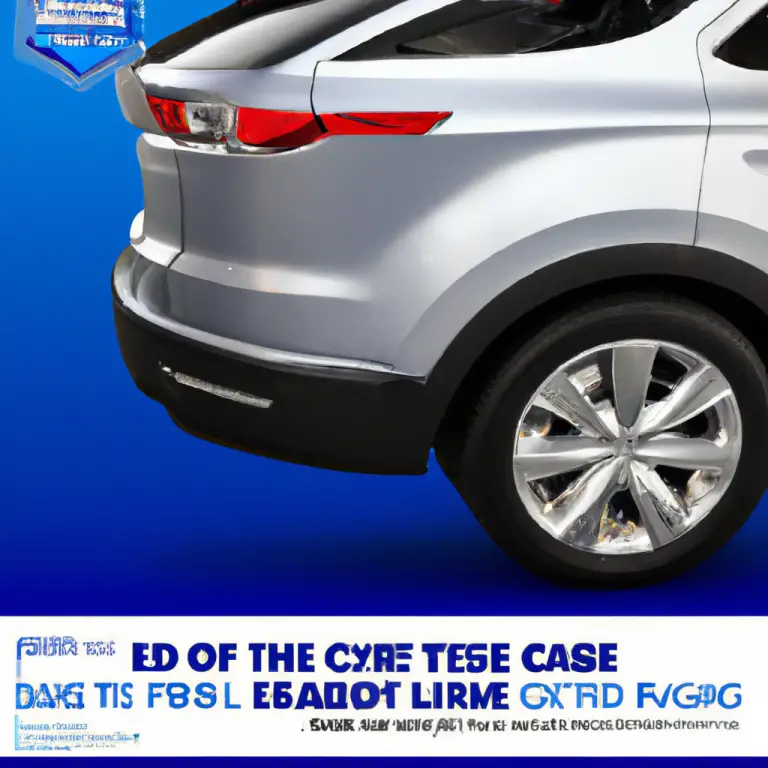Ford F-150 Towing Capacity: Your Ultimate Guide
Key Takeaways:
- The Ford F-150's towing capacity varies significantly based on engine, cab style, bed length, and drivetrain.
- The 3.5L EcoBoost V6 often leads the pack in towing capability for the F-150.
- Always check your specific truck's owner's manual and door jamb sticker for precise towing limits.
- Payload capacity is just as crucial as towing capacity; don't forget about the weight in your truck bed.
- Proper equipment, like a weight-distributing hitch and trailer brakes, is essential for safe towing.
So, you're eyeing a Ford F-150, maybe for hauling your boat to the lake, pulling a camper across the country, or just getting some serious work done around the property. That's awesome! But before you hitch up, a big question pops up: "What exactly is the towing capacity of a Ford F-150?" It's a great question, and honestly, it's not a one-size-fits-all answer.
You see, the F-150 is like a versatile athlete with many different skill sets. Its towing prowess isn't fixed; it changes quite a bit depending on how your specific truck is configured. Think of it like a puzzle, where each piece – the engine, the cab style, the bed length, and even whether it's two-wheel drive (2WD) or four-wheel drive (4WD) – fits together to determine its ultimate strength.
Understanding the F-150's Towing Muscle
Let's dive into the nitty-gritty of what makes an F-150 pull what it pulls. It's not just about raw horsepower; it's a careful balance of engineering.
The Engine: The Heart of the Beast
This is probably the biggest factor in determining how much your F-150 can tow. Ford offers a range of powerful engines, each with its own sweet spot for hauling.
2.7L EcoBoost V6
This engine is surprisingly capable for its size. You might think a smaller V6 couldn't do much, but the EcoBoost technology really makes it punch above its weight. It's fantastic for everyday towing needs, like smaller boats or utility trailers.
3.3L Ti-VCT V6
This is often the standard engine, offering a good balance of power and fuel efficiency. While it might not win any towing records, it's a solid choice for lighter loads and general use. It's reliable and gets the job done.
5.0L Ti-VCT V8
Ah, the classic V8! If you love that traditional growl and robust power, this is your engine. It's a workhorse, capable of handling significant loads. Many folks swear by the 5.0L for its proven reliability and strong performance.
3.5L EcoBoost V6
Often considered the king of F-150 towing, this engine frequently boasts the highest towing capacities in the lineup. Its twin-turbocharged design delivers immense torque, making light work of heavy trailers. If you're serious about towing, this one is usually at the top of the list.
3.5L PowerBoost Full Hybrid V6
This is Ford's innovative hybrid option, combining the 3.5L EcoBoost with an electric motor. Not only does it offer impressive fuel economy for a full-size truck, but it also delivers excellent towing capabilities, often rivaling its non-hybrid counterpart. It's a game-changer for many.
Other Influential Factors

Beyond the engine, several other specifications play a crucial role in your F-150's maximum towing capacity.
Cab Style and Bed Length
Believe it or not, the size of your cab and the length of your bed matter. A Regular Cab with an 8-foot bed might have a different capacity than a SuperCrew with a 5.5-foot bed, even with the same engine. This is due to wheelbase and overall vehicle weight.
Regular Cab
This is your single-row, two-door setup. Often lighter, it can sometimes allow for slightly higher capacities in certain configurations.
SuperCab (Extended Cab)
With smaller rear doors and a bit more interior space, these are popular. They offer a good compromise between passenger room and maneuverability.
SuperCrew (Crew Cab)
The four-door giant, offering the most passenger space. While incredibly comfortable for families, the added weight can sometimes slightly reduce max towing compared to lighter configurations.
Drivetrain: 2WD vs. 4WD
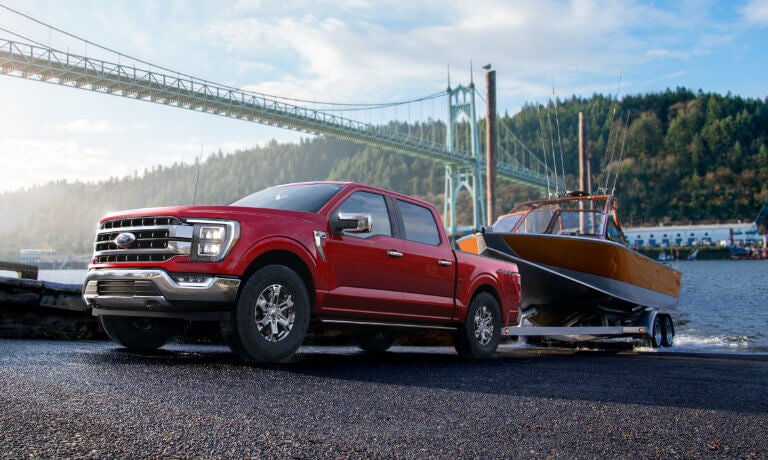
Generally, a 2WD (two-wheel drive) F-150 will have a slightly higher towing capacity than its 4WD (four-wheel drive) counterpart. Why? Because 4WD systems add extra weight to the truck, slightly reducing the amount of weight it can tow. If you don't need 4WD for off-roading or severe weather, 2WD can be a smart choice for max towing.
Axle Ratio
This is a bit more technical, but important. The axle ratio affects how much torque is sent to the wheels. A "taller" (lower numerically, like 3.31) axle ratio is good for fuel economy, while a "shorter" (higher numerically, like 3.73) axle ratio provides more pulling power. Trucks built for max towing often have higher axle ratios.
What About Max Tow Packages?
Ford offers specific "Max Trailer Tow Packages" that bundle together all the necessary components to achieve the highest possible towing capacity for a given engine. These often include an upgraded rear axle, an integrated trailer brake controller, an upgraded front stabilizer bar, and sometimes a larger fuel tank. If you're serious about maxing out your F-150's towing, look for this package.
Payload vs. Towing: Don't Get Them Mixed Up!
This is a common point of confusion. Towing capacity is how much you can pull behind the truck. Payload capacity is how much weight you can put in the truck – that includes passengers, cargo in the bed, and the tongue weight of your trailer. The tongue weight (the downward force the trailer exerts on the hitch) counts towards your payload! Always check your truck's yellow sticker on the door jamb for its specific payload limit. Exceeding payload is just as dangerous as exceeding towing capacity.
So, What's the Number?
While I can't give you the exact number for your specific F-150 without knowing all its specs, typically, a properly equipped Ford F-150 can tow anywhere from around 5,000 pounds up to a staggering 14,000 pounds. The configurations with the 3.5L EcoBoost V6 and the Max Trailer Tow Package are usually the ones hitting that impressive 14,000-pound mark.
Here's a simplified look at the ranges you might expect, but remember, these are general and can vary wildly:

| Engine Type | Typical Towing Range (lbs) | Notes |
|---|---|---|
| 3.3L Ti-VCT V6 | 5,000 – 8,200 | Good for light-duty towing, small boats, utility trailers. |
| 2.7L EcoBoost V6 | 7,600 – 10,100 | Surprisingly capable, excellent for mid-size trailers, campers. |
| 5.0L Ti-VCT V8 | 8,000 – 13,000 | Classic V8 power, great for larger campers, horse trailers. |
| 3.5L EcoBoost V6 | 10,000 – 14,000 | Often the class leader, handles heavy campers, large boats, car haulers. Requires Max Trailer Tow Package for highest ratings. |
| 3.5L PowerBoost Hybrid | 11,000 – 12,700 | Excellent blend of power and efficiency, strong towing numbers. |
Note: These are general ranges for typical configurations. Always check your specific vehicle's documentation for exact numbers.
How to Find YOUR F-150's Exact Towing Capacity
The absolute best way to know your truck's specific towing capacity is to:
- Check your owner's manual: This will have detailed charts based on engine, cab, bed, and axle ratio.
- Look at the sticker on your driver's side door jamb: There's usually a yellow sticker that lists the Gross Vehicle Weight Rating (GVWR), Gross Axle Weight Ratings (GAWR), and often the payload capacity. While it doesn't directly state towing capacity, these numbers are crucial for calculating safe towing.
- Use Ford's online towing guide: Ford usually publishes comprehensive towing guides for each model year on their official website.
Never guess! Overloading your truck is dangerous for you and everyone else on the road.
FAQs About F-150 Towing
Q1: Can all F-150s tow 14,000 pounds?
A1: No, absolutely not. Only very specific configurations, typically those with the 3.5L EcoBoost V6 engine and the Max Trailer Tow Package, can achieve the maximum 14,000-pound towing capacity. Most F-150s will have a lower rating.
Q2: What's the difference between conventional towing and gooseneck/fifth-wheel towing?
A2: Conventional towing uses a hitch receiver on the bumper or frame. Gooseneck or fifth-wheel towing uses a specialized hitch mounted in the truck bed, typically found on heavier-duty trucks like the F-250 or F-350. While some F-150s can be adapted for light fifth-wheel trailers, their primary design is for conventional towing.
Q3: Do I need a trailer brake controller for my F-150?
A3: If your trailer weighs over a certain amount (usually 1,500-2,000 lbs, check local laws), it will likely have its own brakes. An integrated trailer brake controller (ITBC) or an aftermarket one is essential for safely operating those brakes from your F-150. Many F-150s with towing packages come with an ITBC.
Q4: How does the PowerBoost Hybrid engine affect towing?
A4: The 3.5L PowerBoost Hybrid offers excellent towing capabilities, often nearing the top ratings of the non-hybrid 3.5L EcoBoost. It combines strong torque from the electric motor with the power of the EcoBoost, making it a very capable tow vehicle while also offering improved fuel economy and the Pro Power Onboard generator feature.
Q5: Is it safe to tow right at my F-150's maximum capacity?
A5: While your F-150 is rated to tow its maximum capacity, it's generally recommended to stay below that limit, ideally leaving a 10-15% buffer. This gives you a margin of safety for unexpected situations, allows for better control, and reduces wear and tear on your truck. Always factor in the weight of your passengers and cargo, too!
Conclusion
The Ford F-150 is an incredibly versatile and capable truck, and its towing capacity is a huge part of its appeal. Whether you're pulling a small utility trailer or a sizable camper, there's likely an F-150 configuration that fits your needs. Just remember, understanding your specific truck's capabilities and adhering to its limits is paramount for a safe and enjoyable towing experience. Always check your owner's manual and door jamb sticker, and never hesitate to ask a professional if you're unsure.
What are you planning to tow with your F-150? Share your towing adventures and tips in the comments below!

